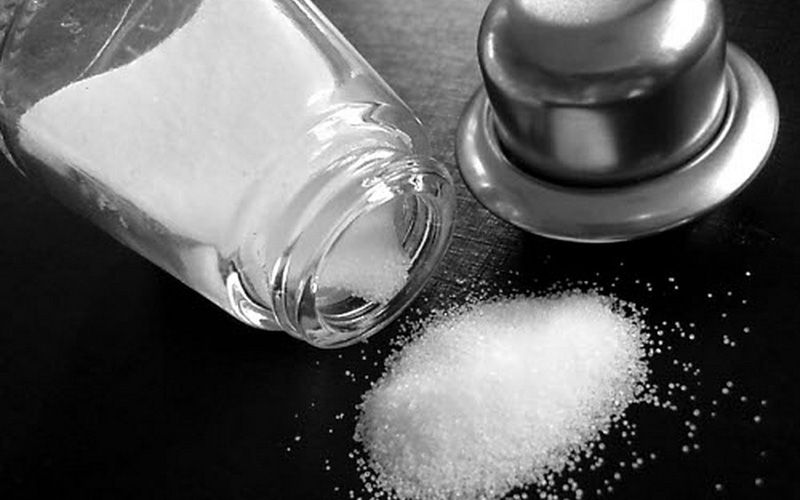Bloating or mood swings: Essentials to know about unexpected signs and symptoms of PMS
Do you have to feel bloating, moodiness, or some other feelings in the days leading up to your period? Many women have uncomfortable feelings in the starting the week of their period.
Ever thought about why it happens? Are you suffering from PMS (Premenstrual Syndrome)? Ever heard about what PMS is? How to prevent yourself from PMS? What are the causes and how it affects your body?
This article will solve all your queries about PMS. Keep reading…
Premenstrual syndrome (PMS) has a variety of signs and symptoms, like mood swings, tender breasts, food cravings, fatigue, irritability, and depression. It’s probably proved that 3 out of every 4 menstruating women have experienced some form of premenstrual syndrome.
PMS is a group of changes that affect your body on many levels. They can be physical, emotional, or behavioral. These symptoms come to the first or second weeks before your period, once your period will starts, the changes will go away.

Less than 5% of women in the time of child deliver to get a more severe form of PMS, called premenstrual dysphoric disorder (PMDD).
PMS may happen more often in women who:
- Have high levels of stress
- Have a family history of depression
- Have a personal history of either depression
PMS symptoms may get worse as you reach your 30s or 40s age and approach menopause.
This is especially true for women whose moods are sensitive to changing hormone levels during the menstrual cycle. In the years leading up to menopause, your hormone levels also go up and down in your body. You may get the mood changes which get worse to your body.
What are the causes and symptoms of PMS?
PMS is linked to the changes in hormone levels that happen during your menstrual cycle. It is not caused by anxiety or depression, but they can make your PMS symptoms worse.
Symptoms of PMS are different for every woman. These are categorized into two levels, such as physical symptoms and mental or emotional symptoms. Your symptoms may also change all over your life.
Symptoms of PMS are given below:
- Physical Symptoms
-Swollen or tender breasts
-Constipation or diarrhea
-Bloating or a gassy feeling
-Cramping
-Headache or backache
-Clumsiness
-Lower tolerance for noise or light
- Mental or Emotional Symptoms
-Irritability or hostile behavior
-Feeling tired
-Sleep problems (sleeping too much or too little)
-Appetite changes or food cravings
-The trouble with concentration or memory
-Tension or anxiety
-Depression, feelings of sadness, or crying spells
-Mood swings
-Less interest in sex
How is PMS diagnosed?
There is no laboratory test for PMS. Your doctor diagnoses your PMS with the help of knowing about your symptoms, including when they happen and how much they affect your life.
You can diagnose your PMS by keep track of which PMS symptoms you have and how severe they are for a few months. Also, write down your symptoms each day on a calendar or with an app on your phone. Take this information with you when you go to consult your doctor.
Which medicines can treat PMS?
.jpg)
There are some medicines available which can help to treat some PMS symptoms.
Such as pain relievers. You can buy these pills at medical stores this may help to reduce the physical symptoms, such as cramps, headaches, backaches, and breast tenderness. These include:
- Ibuprofen
- Naproxen
- Aspirin
Some women find that taking pain reliever pills right before their period starts to reduce the amount of pain and bleeding they have during their period.
Prescription medicines may help if the pain reliever medicines don’t work:
- Antidepressants can help reduce emotional symptoms of PMS for some women when other medicines do not help.
Selective serotonin reuptake inhibitors or SSRIs are the most common type of antidepressant pills which used to treat PMS.
- Diuretics (“water pills”) reduce the symptoms of bloating and breast tenderness.
- Anti-anxiety medicine helps to reduce feelings of anxiousness.
Before taking any medicines to consult your doctor first, because all medicines have risk factors which may affect your body.
How PMS affects other health problems?
About half of women who need relief from PMS also have other health issues which may get worse in the time before their menstrual period. These health problems share many symptoms with PMS which includes:
- Depression and anxiety disorders
These are the most common conditions to be related to PMS. These symptoms are similar to PMS and may get worse before or during your period.
- Myalgic encephalomyelitis/chronic fatigue syndrome (ME/CFS)
Some women report that their symptoms often get worse right before their period cycle starts. Research shows that women in ME/CFS syndrome may also be more likely to have heavy menstrual bleeding and early or premature menopause.
- Irritable bowel syndrome (IBS)
IBS causes cramping, bloating, and gas.
- Bladder pain syndrome
Women with this syndrome are more likely to have painful cramps during PMS.
PMS may also cause some health problems, such as asthma, allergies, and migraines.
How to cure yourself during PMS?

You cannot cure PMS, but you can take steps to relieve your symptoms. If you have a mild or sensible form of premenstrual syndrome, these tips will help you out:
- drinking plenty of liquids to ease abdominal bloating
- eating a balanced diet to improve your health and energy level, which means eating plenty of fruits and vegetables and reducing your intake of sugar, salt, caffeine, and alcohol
- you can take supplements, such as folic acid, vitamin B-6, calcium, and magnesium to reduce your cramps and mood swings
- also, you can take vitamin D to reduce your symptoms
- sleeping at least eight hours per night to reduce fatigue
- exercise daily to decrease the bloating and improve your mental health and it also helps to reduce stress
What is severe PMS?
Severe PMS is known as Premenstrual Dysphoric Disorder (PMDD), symptoms of PMDD are very rare. PMDD affects between 3 to 8 percent of women. This is describing in the new edition of the Diagnostic and Statistical Manual of Mental Disorders.
The symptoms of PMDD may take place due to changes in your estrogen and progesterone levels. There is also a connection between low serotonin levels and. The symptoms of PMDD are given below:
- depression
- thoughts of suicide
- panic attacks
- extreme anxiety
- anger with severe mood swings
- crying spells
- a lack of interest in daily activities
- insomnia
- trouble thinking or focusing
- binge eating
- painful cramping
- bloating
If you suffering from PMDD, your doctor may do theses following diagnosis to rule out your medical problems:
- a physical exam
- a gynecological exam
- a complete blood count
- a liver function test
- psychiatric evaluation
- Also, your doctor will ask your personal or family history of major depression, substance abuse, trauma, or stress to cure your PMDD symptoms.
Your doctor may also recommend these treatments for getting relieved in PMDD.
- daily exercise
- vitamin supplements, such as calcium, magnesium, and vitamin B-6
- a caffeine-free diet
- individual or group counseling
- stress management classes
- drospirenone and ethinyl estradiol tablets (Yaz), which is the only birth control pill which is approved by The Food and Drug Administration to treat PMDD symptoms
What type of diet you should follow in during PMS or PMDD?
.jpg)
If premenstrual Syndrome (PMS) is out of control, so there is also some natural ways to control symptoms such as exercise and a healthy diet.
Exercise and a healthy diet can control the bloating, depression, irritability and mood swings in PMS or PMDD. These are the following dietary shifts you can stick to cure in PMS and PMDD:
- Reduce salt
- Eat a variety of foods and vegetables
- Focus on leafy vegetables
- Drink plenty of water
- Eat more calcium/Low-fat dairy foods
- Get your proper vitamin D
- Eat nuts like pecans, walnuts, almonds, and hazelnuts in snacks time
- Eat complex carbs like sweet potatoes, squash, pumpkin, and unprocessed oats
- Eat whole grains, bread, pasta, cereals, and brown rice
- Limit alcohol and caffeine
- Eat iron-riched food like lean meat
Summary
PMS and PMDD symptoms can be cured, but they typically go away after the start of menstruation cycle. A healthy lifestyle, a healthy diet, and a comprehensive treatment can reduce or eliminate the symptoms of PMS and PMDD.
Your daily habits and daily routine is the only solution to your PMS and PMDD, there is no laboratory test or any type of surgeries or treatments to prevent you from PMS and PMDD.







